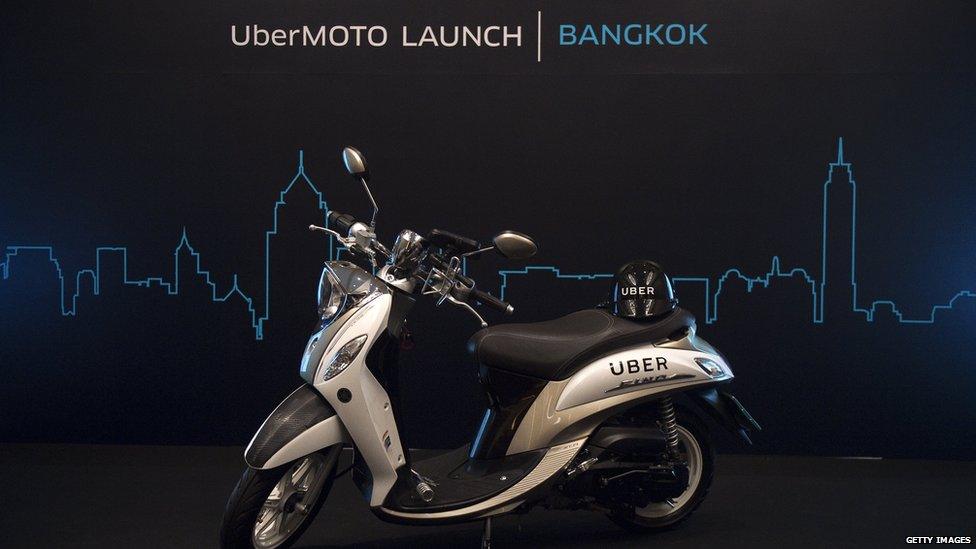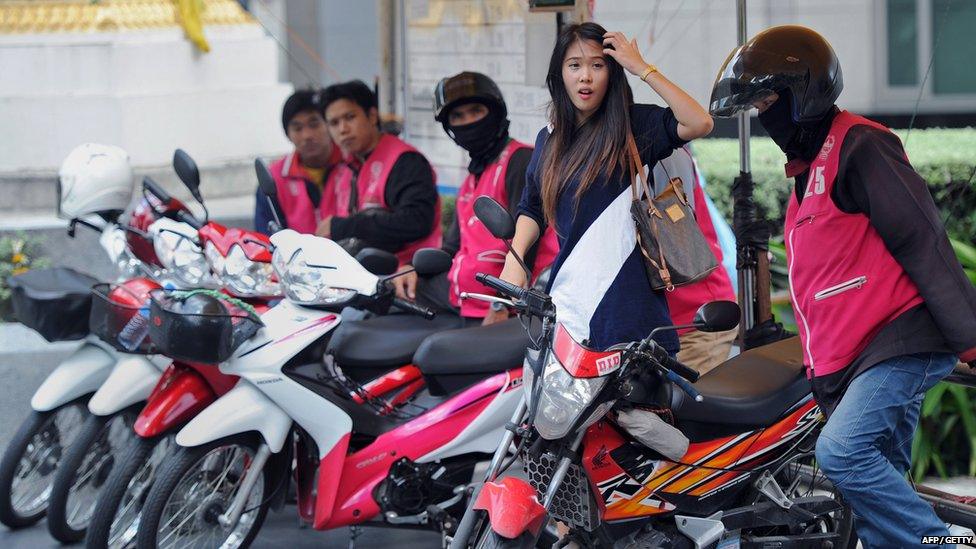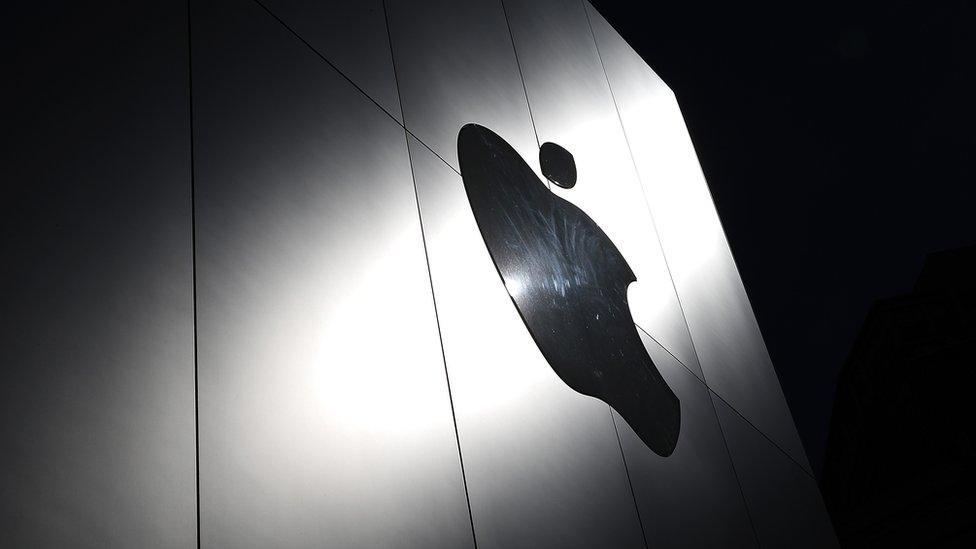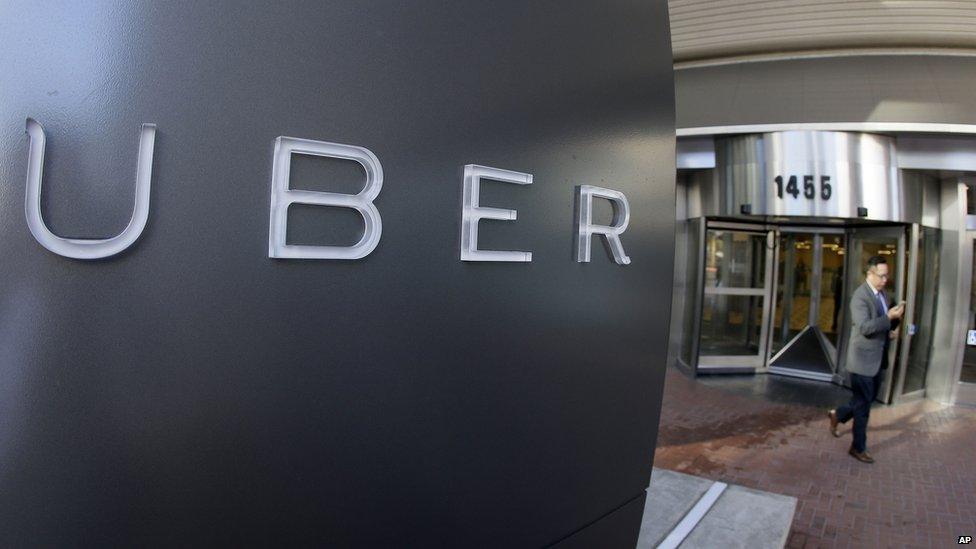Thailand suspends Uber and Grab motorcycle taxi service
- Published

Uber launched its Thai motorbike taxi service in February to better compete with rival Grab
Thailand has suspended motorcycle taxi-hailing services run by Uber and its regional rival Grab on claims they broke local rules and are clashing with registered transport companies.
Thai authorities have also arrested 66 drivers working for both companies.
They said offenders face fines of up to 4,000 baht (£77; $112) and potentially having their licences suspended.
It is unclear how long the ban is for, but both companies said they were working to resolve the issues.
"This is a temporary pause for a global pilot," Uber said in a statement to the BBC.
"We hope to resume services as quickly as possible and have every reason to believe, based on the positive, and productive discussion we are having with the relevant authorities in Thailand that this is possible."
"Grab Thailand is a local company and we are committed to providing safe rides for all and improving the lives of our drivers," Grab said in an e-mailed statement.
It added it is looking to ensure that "GrabBike service operates within the proper guidelines and work together towards a well-regulated ecosystem of complementary transport services".

Motorcycle taxis are a popular form of transport in Bangkok
The crackdown comes just three months after Uber launched its two-wheeler service in the Thai capital Bangkok.
Motorcycle taxis are popular in Bangkok because they can weave through the city's notorious traffic jams to cut travel times.
There are more than 186,000 registered motorcycle taxis in Thailand, with almost half found in the capital.
The service is also popular in other major Asian cities, such as Jakarta and Manila.
However, popular ride-hailing apps like Uber and Grab have faced stiff opposition.
Earlier this year, taxi drivers in Jakarta brought parts of the capital to a standstill, with some protestors turning violent.

Analysis: Jonathan Head, BBC South East Asia correspondent
At almost every street corner in Bangkok you will see them - a cluster of motorbikes and their driver, wearing fluorescent orange jackets.
The motosai motorbike taxi services are an essential part of Bangkok life, offering rides to passengers over short distances, and weaving through the city's traffic jams for those in a hurry. Thai women have mastered the art of perching side-saddle on the back of these bikes; occasionally you will see someone laden with merchandise from a market.
In the past the drivers were managed by a local informal operator, to whom they paid a fee for their jackets, and a percentage of their earnings, for the right to wait for passengers at prime spots. Because of this the drivers have always been fiercely protective of their patch, and hostile to motosai drivers operating outside their areas.
After the coup in 2014 the new military government attempted to regulate the business more transparently by making the drivers buy their orange jackets directly from the Department of Transport. But the arrival of Uber and Grab motorbike services threatened to disrupt this arrangement.
The government made it clear that the two digital interlopers were not legal, but did not act against them until a scuffle last week between a local motosai and a Grab motorbike driver picking up a passenger. The police arrested the Grab driver and fined him 4000 Thai baht ($120). They now appear ready to enforce the official ban on the two new services.
On social media Thai commentators have generally praised the quality of motorbike taxi services offered by Grab and Uber, and pointed out that the supposedly government-regulated motosai drivers sometimes drive badly and without adequate equipment.

- Published13 May 2016

- Published9 July 2015
